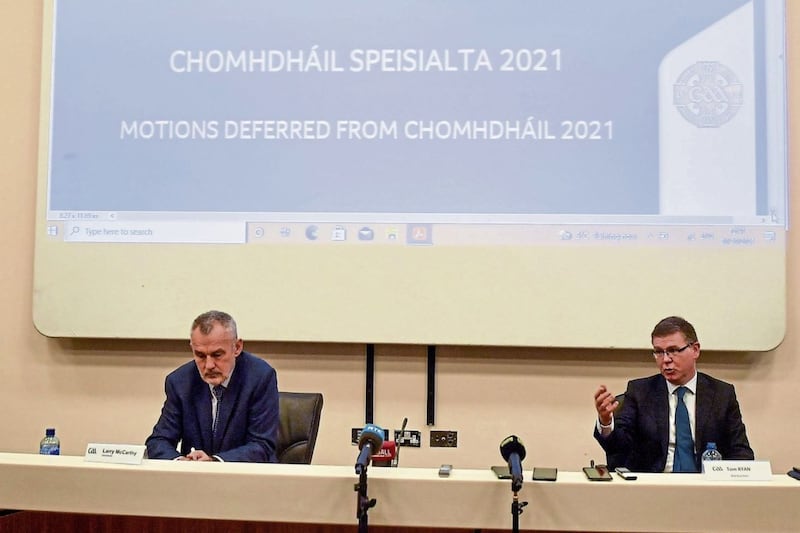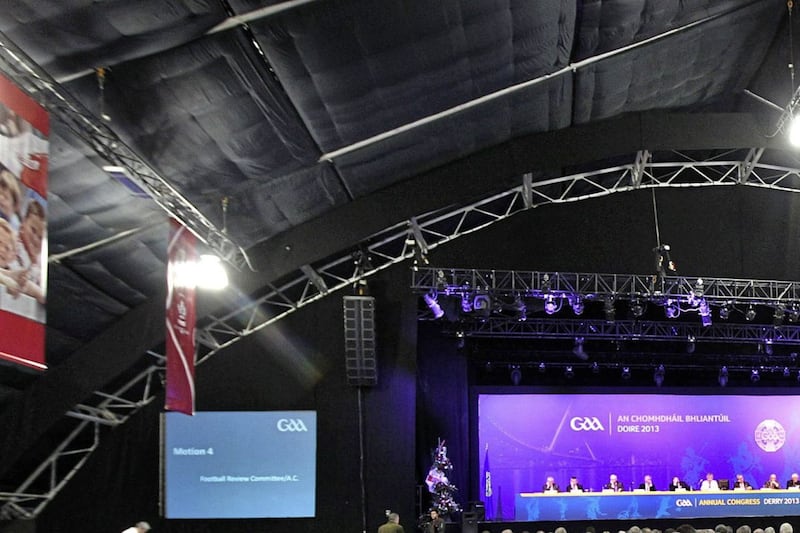A BAN on passing the ball to goalkeepers in open play could be implemented without the need for a trial, GAA president John Horan has said.
Speaking at yesterday’s launch of the All-Ireland Super 8s series at the clubrooms of Monaghan and Ulster giants Scotstown, Horan says such a proposal is likely to be on the agenda for this autumn’s Special Congress.
It had initially been proposed last year by the Standing Committee for Playing Rules but didn’t make it past the initial stages.
However, Horan says that he expects it to be revisited and backed the idea, saying that passing the ball back to ‘keepers had become a “release valve” for teams in possession.
“A proposal on changing the rule doesn’t have to be experimented on,” he said.
“The stats on it, of the 20 games that were analysed for the National League, there was an average of 10 back passes to the goalkeeper.
“If you think about it, if you take out the goalkeeper as the safety valve behind the defence, it then allows the team to press forward much more and actually draw them out instead of going back behind.
“It was unfortunate that we didn’t get it into the mix at the particular time, but it’s there for debate now and it will be put out for people to talk about.
"I'm not saying this is going to happen - I'm only saying it's out there for debate.”
The president’s proposals for a tiered football championship could be altered to ensure that teams promoted out of Division Three of the Allianz Leagues would play for that year’s Sam Maguire.
Cork, Tipperary and Derry are among the counties that will start 2020 in the third division of the league structures.
Under the original proposal, they would have been in the second tier championship, but GAA president John Horan yesterday revealed that it was likely to be altered.
Those winning promotion from Division Three would play in the top tier, with the two teams relegated from Division Two also dropping into the second tier championship unless they were to reach their provincial final.
Horan did, however, rule out the prospect of linking the second tier championship into the top tier in the same year by virtue of a similar platform that operates in hurling.
The Joe McDonagh Cup winners and beaten finalists both go straight into preliminary All-Ireland hurling quarter-finals, giving them an immediate window as a reward for success.
Horan said that such a system was “not practical” in football due to the timing and structure of the competitions.
“It’s not practical because the competition won’t start until after the semi-finals of the provinces have happened and to run off a competition, by the time you’d arrive with your winner, you’d be too far down the road. You’d be probably at the semi-final stages of the All-Ireland championship itself.
“It’s not really a runner. There’s been no push for that either.”
Down coach Benny Coulter and Derry captain Chrissy McKaigue are among those to have come out against the idea in recent days, but Horan argued that if counties end up in the second tier then that’s where they deserve to be.
“You’ve got to live in the real world. If you fall to Division 3 or 4 in the league, you’re not there out of bad luck. You’re there out of results and a state of position where you are.
“I can understand counties that are strong saying ‘it’s beneath us to be in this’, but maybe that’s where they are and that’s where they need to…
“Who would have said two years ago that Sligo will next year be playing Offaly in the Christy Ring? But Offaly have to live in the real world. That’s where they are and have to work themselves out of there.”








